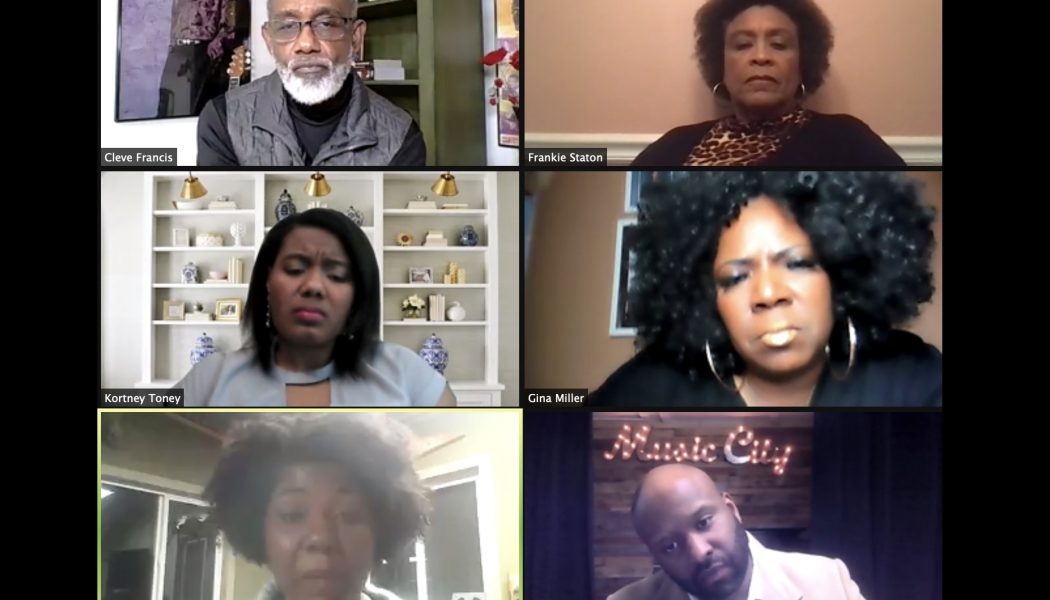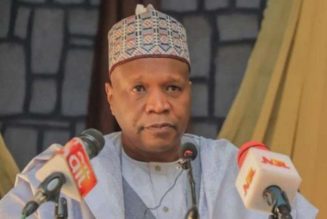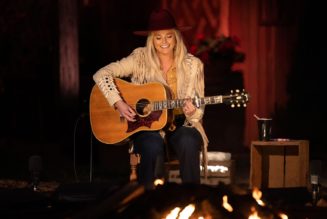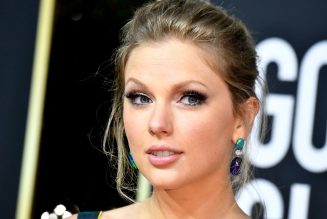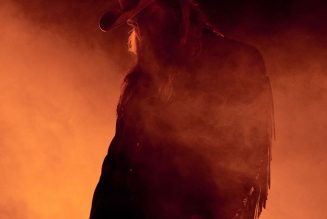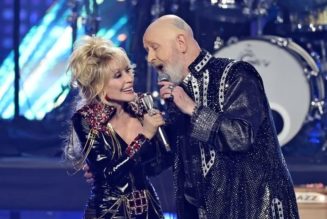
A cardiologist who sang on the side, Francis’ music attracted the attention of CMT, which played the video of his remake of Glen Campbell’s “Lovelight.”
The CMT play prompted Liberty head/producer Jimmy Bowen in 1991 to sign Francis, who, at that time, became the only Black artist signed to a major label in Nashville. “He said, ‘I’ll give you a three-[album deal]. There’s a need for another voice in country music… you have a natural voice like Charley Pride does,’” Francis recalled.
The label sent Francis on a radio station tour across the country and he garnered press in national publications, including The Washington Post and People, but “the record fell on its face. We released two more songs and they fell on their faces,” Francis said. “The radio stations had turned on me. No one would take me on tour with them. There was no one who would touch me.” (Francis’s highest charting single, “You Do My Heart Good,” reached No. 47.)
In a 1994 commentary for Billboard, Francis gave a brief history of the African-American role in developing country music, including slaves bringing the banjo to America and the contributions of such artists as DeFord Bailey, Stoney Edwards and O.B. McClinton, but he also addressed the fact that the way some country acts, and often the genre, tied its marketing efforts with Confederate imagery was hugely problematic. “It didn’t help when some of country’s biggest stars aligned themselves with staunch segregationists and campaigned against civil rights for Blacks,” he wrote. “For many African-Americans, country music became the symbol of oppression because of its perceived association with the racism of Southern whites.”
That complicated history showed itself when Francis played at a Black National Convention Planners event in San Antonio, Texas. “There were all Black people. Within 15 minutes, they all got up and left,” he said. “They said [country] was racist music.”
As a result of his experiences, Francis formed the Black Country Music Association. “I wondered why all these Blacks were trying to get into the industry and had doors slammed on them,” he says. The organization’s goal was to educate people about Black country music as much as to promote individual members.
Singer and songwriter Frankie Staton ran the organization. Raised on country artists like Dolly Parton and Johnny Cash, she moved to Nashville to pursue a music career, but at jam sessions, she would be the first to sign up only to still not hear her name called three hours later to take the stage.
Though she found work at the Brass Rail in Printer’s Alley, she could not get a toehold with any facet of the recorded music industry, “I was able to perform as a live performer all over [Nashville],” she says. “It was Music Row that always stopped me.”
But she persevered. “Sometimes in life you have to wait, even when people want you to get up and walk away, you have to stay when everyone is screaming no,” she said.
She continued to knock on doors eager to find a way for Black country artists to be heard in a meaningful way and eventually linked up with the historic Bluebird Cafe for a showcase for Black country musicians from all over the United States. “I wanted to say, if only for one moment in their lives, they felt like a star, and it happened on an industry stage in Nashville, Tennessee,” she said.
Valierie Ellis was one of the artists who took the Bluebird stage and was eventually signed with Warner Bros. Nashville after noted songwriter Max T. Barnes saw her perform at Nashville club The Broken Spoke. She recorded a demo tape for him, and in a Music City twist of fate, her mom played it for the president of Randy Travis’ fan club, whose house she cleaned. That woman introduced her to Travis and his then-wife/manager Lib Hatcher, who took her to Warner Bros. “It was a very lonely journey,” Ellis said, getting clearly emotional as she recalled getting very little support and finally the label saying it didn’t know how to market her. “The door was cracked, but never wide open enough to walk through,” she said.
With a growing number of strong new Black artists now trying to break through into country — including Brittney Spencer and Reyna Roberts — as well as the success of acts like Darius Rucker, Kane Brown, Jimmie Allen, Mickey Guyton, Breland and Blanco Brown — Entertainment One GM Gina Miller said, “I do feel like there is some kind of movement emerging in front of us. We’re at the point where you can name a lot of names — more than both hands will allow.”
As to where to go from here, Francis suggested that the Country Music Association form a diversity task force, but posited that nothing would change. “If Nashville is serious about [structural and institutional] racism, which I have strong doubts, the CMA would form a task force to discuss this problem.” The industry needs to ask itself: “’What can we do to be more inviting to the African-American community? We’ve taken their drumming and their banjos and not given anything back’ … This is Racism 101, and if they want to keep it that way, they’re making a statement.” While he noted that many of today’s leaders are younger, “They’re saying they don’t really need us. ‘We’re doing fine, the door is closed.’”
(Both the CMA and the Academy of Country Music did form diversity task forces in 2019, primarily to address the issue of lack of play for female artists. Representatives for the CMA did not immediately respond for comment.)
The idea was also suggested to market to the broad swath of fans who may not know about the music but would like to support it and expand beyond the traditional country audience. “If people don’t like you, they aren’t going to like your music,” said panelist Shannon Sanders, BMI executive director, creative. “The investment has to be made in new audiences. People who buy Black music will buy [country music by Black artists] too. I’m not saying just black people. [It’s] not trying to force it to people who say they don’t want it.”
Francis also suggested reviving the BCMA under Staton, who stressed that for now, the organization is dormant. By the panel’s end, it was clear its status may change.
Staton predicted that as more Blacks are given their fair chance in country music, there will be an evolution. “It’s going into those places that it hasn’t gone,” she says. “There’s a whole lot of room for a lot of great things to be done. We’re standing on the forefront of a yet-defined [era] that will go down in history.”
And if the conventional gatekeepers continue to deny creatives entrance, Sanders offered another solution. “If you keep banging on the door and they don’t want to let you in, just go build your own house.”
